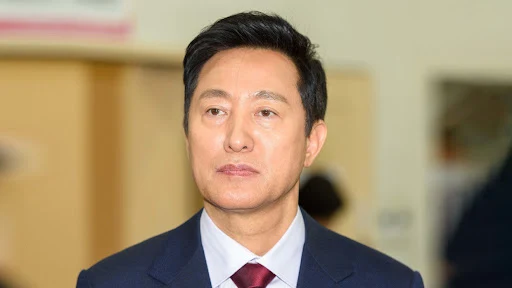In a bold statement that underscores the escalating tension on the Korean Peninsula, Seoul Mayor Oh Se-hoon has advocated for South Korea to develop its own nuclear weapons. The mayor's remarks came amid growing concerns over North Korea's increasingly provocative actions, including recent military drills aimed at the South and the use of balloon launches to distribute propaganda across the heavily fortified border. Mayor Oh argued that South Korea's reliance on the U.S. for nuclear protection is insufficient to address the current threat environment, especially in light of North Korea's advancing nuclear capabilities under leader Kim Jong-un.
Oh Se-hoon emphasized that North Korea's nuclear arsenal, which continues to grow in sophistication and destructive potential, has created a significantly asymmetric security situation. He voiced his frustration over the widening military gap between the two Koreas, which he believes places South Korea at a disadvantage. "We cannot continue to rely solely on the United States’ nuclear umbrella. It is time for South Korea to consider developing an independent nuclear deterrent to protect our citizens from the looming threats from the North," he said.
The mayor’s call for nuclear armament comes against the backdrop of increased military activity on the peninsula. North Korea has accused South Korea of provocative actions, while continuing to retaliate against perceived threats with displays of military strength. The situation has put additional pressure on South Korean leaders to reassess the nation's defense strategies.
Despite the mayor's stance, President Yoon Suk Yeol has maintained a different approach, stating that South Korea remains committed to its long-standing policy of non-proliferation and will continue to depend on the United States for nuclear protection. The president has reiterated that the U.S. nuclear umbrella remains a crucial component of South Korea's defense strategy, emphasizing that there are no current plans to pursue an independent nuclear weapons program. President Yoon's position aligns with South Korea's commitment to international agreements aimed at preventing the spread of nuclear weapons, including the Treaty on the Non-Proliferation of Nuclear Weapons (NPT).
The ongoing tension between the two Koreas has become more pronounced in recent months. North Korea’s missile tests, military exercises simulating attacks on South Korean targets, and propaganda efforts have escalated fears of conflict in the region. The U.S. and South Korea have responded by conducting joint military exercises to demonstrate their readiness and resolve, a move that has further aggravated Pyongyang, which perceives such drills as preparations for invasion.
Mayor Oh's call for nuclear armament reflects a growing sentiment among some South Korean officials and citizens who feel that the nation must take more assertive steps to ensure its security. Proponents of nuclear armament argue that possessing a nuclear deterrent would provide South Korea with greater leverage in negotiations with the North and strengthen its position in the face of an unpredictable and hostile neighbor. Critics, however, warn that developing nuclear weapons could trigger a regional arms race, drawing Japan, China, and other regional powers into a dangerous cycle of military escalation.
The mayor's comments have sparked a significant debate within South Korea, with some lawmakers echoing his concerns, while others advocate for continued reliance on diplomatic efforts and international alliances. The question remains whether South Korea will reassess its long-standing nuclear policy or maintain its current course, balancing regional stability with the need for enhanced defense measures.
As tensions continue to mount, the future of South Korea's defense strategy may depend on finding a balance between the mayor's push for stronger deterrence and the president's commitment to a non-nuclear path. The debate will likely continue to evolve as North Korea’s actions grow bolder and the geopolitical landscape in East Asia becomes more volatile.
Tags
International

